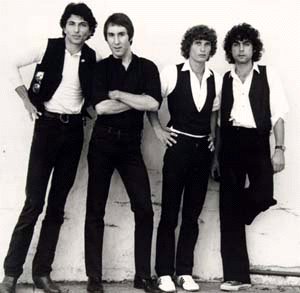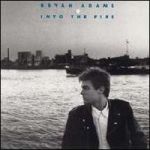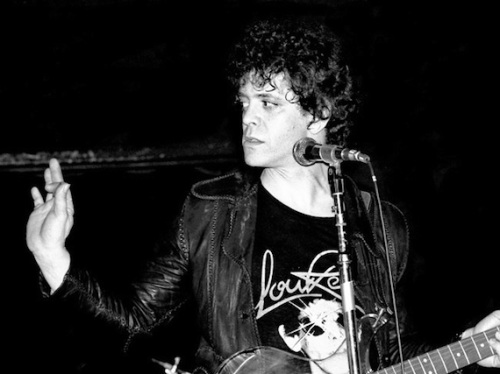 In the two-plus years since Tom Petty’s passing, his music rings true as ever, and sounds just as it was meant to be -timeless. Let’s rewind and take a listen to the band that has best represented American Rock music for 40 years – a deserved title for Petty and the Heartbreakers. Sounding not from one place (belying the band’s strong Florida roots), and instead sounding like they were from everywhere enabled them to connect with rednecks and hippies, East coast attitude and West coast shine. They rocked loud. And Tom could become acoustic and quiet. Lyrics resonated. Petty could also sweat and smile at the same time. It is a band with a long history; one that made music that goes back to the original Mudcrutch days. Giving them the nod as the quintessential American rock and roll band is no small honor. Petty and his boys owned the package of accessibility, writing, passion and sweet-ass rock and roll hooks.
In the two-plus years since Tom Petty’s passing, his music rings true as ever, and sounds just as it was meant to be -timeless. Let’s rewind and take a listen to the band that has best represented American Rock music for 40 years – a deserved title for Petty and the Heartbreakers. Sounding not from one place (belying the band’s strong Florida roots), and instead sounding like they were from everywhere enabled them to connect with rednecks and hippies, East coast attitude and West coast shine. They rocked loud. And Tom could become acoustic and quiet. Lyrics resonated. Petty could also sweat and smile at the same time. It is a band with a long history; one that made music that goes back to the original Mudcrutch days. Giving them the nod as the quintessential American rock and roll band is no small honor. Petty and his boys owned the package of accessibility, writing, passion and sweet-ass rock and roll hooks.
Here for you, my friends, is the RockForward list of Petty’s 7 Essential Albums (and a couple that were too good to leave off).
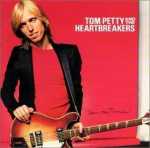
1. Damn the Torpedoes (1979) – Straddling intersecting lines of power pop, rock and roll, and new wave, Petty made the record that, all these years later, more than any other album, defines him. Is it his best record? Always debatable but I’d have trouble saying there is one better than Damn the Torpedoes. The songs that became classic rock radio staples have stood the test of musical time; they still sound essential. The album cover art is iconic. And an album cut like “Shadow of a Doubt (A Complex Kid)” sounds just as good as classic rock radio choices. Producer Jimmy Iovine worked the band endlessly to get the sound he wanted. They recorded live, in the same room, take after take. It worked. It is the album that made superstars of Tom Petty & the Heartbreakers.
ESSENTIALS: “Refugee”, “Don’t Do Me Like That”, “Even the Losers” and “Here Comes My Girl”
HIDDEN GEMS: “Shadow of a Doubt (A Complex Kid)”, “Louisiana Rain”
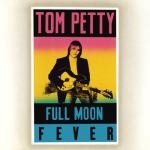 2. Full Moon Fever (1989) – Shine it up, Jeff Lynne! Let’s make a pop/rock masterpiece! The ELO mastermind had Tom without the band (except for the liberal use of guitarist Campbell) and crafted a smashing hit. The hard-edged heartland rock of Petty’s previous few records was augmented by a California gloss, banks of acoustic guitars, washes of Lynne background vocals, and drums that sound like tambourines are chained to the snare. It is a slice of brilliance. Listen to the album today because there’s a pop music sweetness that Petty, though he would try, would never again duplicate.
2. Full Moon Fever (1989) – Shine it up, Jeff Lynne! Let’s make a pop/rock masterpiece! The ELO mastermind had Tom without the band (except for the liberal use of guitarist Campbell) and crafted a smashing hit. The hard-edged heartland rock of Petty’s previous few records was augmented by a California gloss, banks of acoustic guitars, washes of Lynne background vocals, and drums that sound like tambourines are chained to the snare. It is a slice of brilliance. Listen to the album today because there’s a pop music sweetness that Petty, though he would try, would never again duplicate.
ESSENTIALS: “Running Down a Dream”, “Free Fallin'”, “Long is a Long Road”, “I Won’t Back Down”
HIDDEN GEMS: “The Apartment Song”, “Dependin’ on You” “Face in the Crowd” “Feel A Whole Lot Better”
3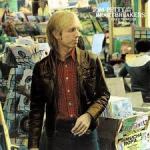 . Hard Promises (1981) – Maybe the follow-up to Damn the Torpedoes was even better than it’s predecessor. The songs are more ambitious, deeper lyrically, and show some lyrical maturity – and jadedness. Many of the tunes have been Petty concert staples since the 1981 release. Still, there weren’t radio hits quite like the previous record’s songs. “The Waiting” is an enduring standout track, but in 1981, success to rock and roll artists like Petty was radio airplay. Not that hits = a great record, but this one ranks this high for the depth of the bench, not the superstars.
. Hard Promises (1981) – Maybe the follow-up to Damn the Torpedoes was even better than it’s predecessor. The songs are more ambitious, deeper lyrically, and show some lyrical maturity – and jadedness. Many of the tunes have been Petty concert staples since the 1981 release. Still, there weren’t radio hits quite like the previous record’s songs. “The Waiting” is an enduring standout track, but in 1981, success to rock and roll artists like Petty was radio airplay. Not that hits = a great record, but this one ranks this high for the depth of the bench, not the superstars.
ESSENTIALS: “The Waiting, “Insider”, “Something Big”
HIDDEN GEMS: “A Thing About You”, “Letting You Go”
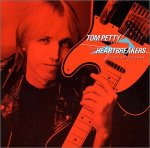
4. Long After Dark (1982) – This is where you get to beat me up, as Long After Dark is an overlooked record that essentially completed their first run of big success. It could be heard as dark and lacking a spark, but I don’t hear it that way. Instead, I hear a band that is rocking and rolling and powering through the making of another album in a string of records that have taken them to a question “OK. What now?” Where Hard Promises was edgily introspective, Long After Dark was angry. Let’s forgive “You Got Lucky” – the synthesizer dates it terribly. Listen to tough shit like “Finding Out”, “Change of Heart” and the title cut. It’s all played aggressively and passionately, slathered with enough of the sweet Petty sound to make it engaging. Of all his releases, it is the one truly lost great Tom Petty album.
ESSENTIALS: “Change of Heart”, “Deliver Me”
HIDDEN GEMS: “The Same Old You”, “We Stand a Chance”
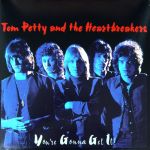 5. You’re Gonna Get it (1978) The best of his early period, The band took the template of The Cars – or The Cars stole it from Petty – and made their initial leap from new wave to straight-up rock and roll. Even a buried cut like “No Second Thoughts” shows the progression and maturity, sounding like something from Exile on Main Street. The album was an essential indicator that Tom Petty and the Heartbreakers were as good as anybody else in 1978.
5. You’re Gonna Get it (1978) The best of his early period, The band took the template of The Cars – or The Cars stole it from Petty – and made their initial leap from new wave to straight-up rock and roll. Even a buried cut like “No Second Thoughts” shows the progression and maturity, sounding like something from Exile on Main Street. The album was an essential indicator that Tom Petty and the Heartbreakers were as good as anybody else in 1978.
ESSENTIALS: “Listen to Her Heart”, “I Need to Know”. “When the Time Comes”
HIDDEN GEMS: “Hurt”, “Magnolia”
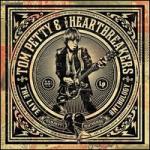
6. The Live Anthology (2010) – With 58 songs, it isn’t one you will sit down to listen straight through. But it very much is an album that you can fire up, choose a random track, and never be disappointed. Never. Hits like “Free Fallin'” and “Breakdown” are here, but so are album heroes like “Louisiana Rain” from Damn the Torpedoes, “Have Love, Will Travel” (one of the few keepers from The Last DJ ) and “Oh Well”, a song from Fleetwood Mac that later became a hit for the Detroit band The Rockets in the late 70’s. It is a sprawling testament to what American rock and roll sounds like. The album encapsulates everything musically righteous about a band that not only made essential records but celebrated them live.
ESSENTIALS: Most of it
HIDDEN GEMS: The rest
 7. Echo (1999) – A return to his classic sound, it is the final album with bassist Howie Epstein before he died. An aggressive and intimate record, it showed the band could still fight. Epstein, in the final stages of his long drug battle, struggled to even show up (he’s not in the cover photo) and Petty has said he was absent himself for too much of it. Somehow, the raw power of band overcame all those problems to create a keeper. A sprawling 15-song album, producer Rick Rubin helped maintain an aggressiveness without it getting messy. “Free Girl Now” is one of his best rockers, and “Swingin'” sounds like nobody but Petty. There are a whole lot of guitars, drums and strong Petty vocals. It is really the last album he made that has a distinct echo back to Damn The Torpedoes. This inclusion may get the argument started about the validity of the whole list. I don’t care. Echo sounds good loud, so crank it.
7. Echo (1999) – A return to his classic sound, it is the final album with bassist Howie Epstein before he died. An aggressive and intimate record, it showed the band could still fight. Epstein, in the final stages of his long drug battle, struggled to even show up (he’s not in the cover photo) and Petty has said he was absent himself for too much of it. Somehow, the raw power of band overcame all those problems to create a keeper. A sprawling 15-song album, producer Rick Rubin helped maintain an aggressiveness without it getting messy. “Free Girl Now” is one of his best rockers, and “Swingin'” sounds like nobody but Petty. There are a whole lot of guitars, drums and strong Petty vocals. It is really the last album he made that has a distinct echo back to Damn The Torpedoes. This inclusion may get the argument started about the validity of the whole list. I don’t care. Echo sounds good loud, so crank it.
ESSENTIAL: “Free Girl Now”, “Swingin'”
HIDDEN GEMS: “This One’s For Me”, “Room at the Top”, “Accused”
Four more for the road (Honorable Mentions)
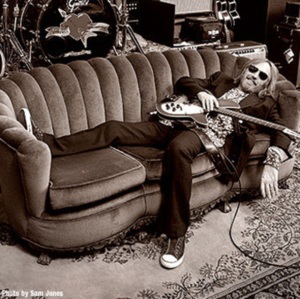 Wildflowers (1994) – His second album minus the Heartbreakers, it is an organic yet surprisingly lively rock and roll record. “You Don’t Know How it Feels” and “You Wreck Me” fit right into the Petty classic canon. The title cut is one of his best aching love songs. I know friends who call this their favorite album. He was at the top of his mid-career writing game. LISTEN
Wildflowers (1994) – His second album minus the Heartbreakers, it is an organic yet surprisingly lively rock and roll record. “You Don’t Know How it Feels” and “You Wreck Me” fit right into the Petty classic canon. The title cut is one of his best aching love songs. I know friends who call this their favorite album. He was at the top of his mid-career writing game. LISTEN
Into the Great Wide Open (1991) – Some great tunes (trademark Petty with “Learning to Fly” and the narrative title cut) with rockers (“Makin’ Some Noise”, “Kings Highway”) that came up slightly short in the enormous shadow that was cast by Full Moon Fever. Drop it into another year in his catalog (say 2006), and it might feel stronger in that different context. LISTEN
MOJO (2010) Here’s a prediction: The Mojo album will eventually be hailed as one of his brilliant moments. It was the album where Petty let the band loose to play modern blues, kept familiar by the Florida nasal twang of the frontman. He loosened the grip on the boys, probably smoked a little weed, and told the band to play what felt right. LISTEN
Pack Up the Plantation (Live) (1986) – I’m still not sure TP and the band needed a horn section, but what the hell. Back in the mid-1980’s, it sounded good because it was all we had if we wanted to hear them live. We couldn’t hop on YouTube and find an audience recording of the previous show. We still needed live albums to hear the rough-and-tumble side of the band, and the album was their first sloppy, endearing, officially released memento of the road-weary rockers. Includes “American Girl”, Refugee”, “The Waiting” and Breakdown”, but it isn’t really a greatest hits record. The single from the album? A heartfelt cover of The Searchers’ “Needles and Pins”, sung with official Heartbreaker groupie, Stevie Nicks. LISTEN
BONUS: A terrific song from She’s The One, the soundtrack-that-was-really-an-album release.
